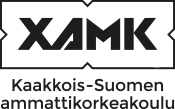Accounting (5 cr)
Code: LL00CP51-3002
General information
Enrollment
02.01.2019 - 14.01.2019
Timing
07.01.2019 - 24.02.2019
Number of ECTS credits allocated
5 op
Virtual portion
2 op
Mode of delivery
60 % Contact teaching, 40 % Distance learning
Unit
Department of Logistics and Marine Technology
Campus
Kotka Campus
Teaching languages
- Finnish
Degree programmes
- Degree Programme in Business Logistics
Teachers
- Maisa Räsänen
Teacher in charge
Maisa Räsänen
Groups
-
LLKT18SP
Objective
You show that you are familiar with the basics of financial accounting from the perspective of demand-supply chain management.
You are able to enter basic business transactions in bookkeeping records and financial statements.
You are able to analyze the demand-supply chain management of a small enterprise by using financial statements and ratios.
You are able to explain the basic principles of value added taxation and business taxation in different forms of business.
Content
What is the role of financial accounting in demand-supply chain management?
How to apply the process of accounting cycle in a small enterprise?
How to interpret the financial statements and ratios in the demand-supply chain management of small and medium-sized companies?
How to take into account the value added taxation in the accounting cycle and reporting?
How does the business taxation vary in different forms of business?
Materials
Book: Jormakka, Koivusalo, Lappalainen, Niskanen: Laskentatoimi Edita (Business),
year 2016 (or older edition).
Material shared via Moodle: videos, websites, assignments etc.
Evaluation scale
1-5
Assessment methods and criteria
Assignments and exam.
Assessment criteria, good (3-4)
You can systematically use professional terminology related to financial accounting.
You can identify interrelated tasks.
You can use the key methods, software and techniques of financial accounting.
